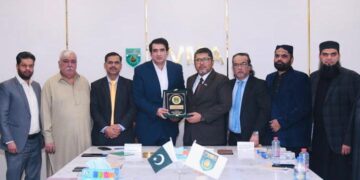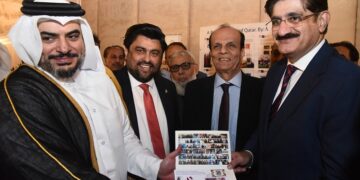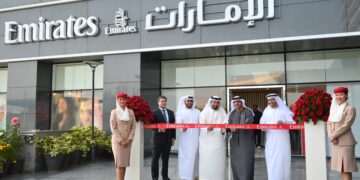Pakistan : Mr. Atif Ikram Sheikh, President FPCCI, has apprised that Mr. Rashid Mahmood Langrial, Chairman of the Federal Board of Revenue (FBR), has agreed, in an exclusive, candid and detailed meeting, with FPCCI’s demand of an end to harassment of genuine and regular taxpayers – and, only the tax evaders or defaulters should be served with notices.
However, FBR Chairman demanded that FPCCI should support the efforts of FBR to persuade all traders and industrialists to file their returns in a fair, legitimate and transparent manner. To which the high-profile FPCCI delegation agreed to assist FBR; if the tax collection machinery is run and policymaking is undertaken in a consultative style.
Mr. Atif Ikram Sheikh acknowledged that the demand of signing an affidavit by chief financial officers (CFOs) of companies has been withdrawn by FBR after special request by FPCCI. It was intrinsically unnecessary and redundant as sales tax act 1990 already offers enough provision for responsible filing of the sales tax returns, he added.
Mr. Saquib Fayyaz Magoon, SVP FPCCI, observed that FBR’s revenue collection target is PKR. 12.97 trillion – representing a 40 percent YoY increase – while the economy is growing at only 2 – 3 percent. This is huge cause of concern for the business community; and, may result in new taxes, mini budgets and taxing the already taxed even further.
Mr. Saquib Fyyaz Magoon maintained the Finance Bill has significantly reduced the business community’s confidence in the government policies due to the abrupt withdrawal of 1 percent full and final liability for exporters; and, sales tax exemption on local supplies to registered exporters authorized under the Export Finance Scheme (EFS).
SVP FPCCI highlighted that Tajir Dost Scheme (TDS) was also implemented without consultation; and, as a matter of fact, it has been revealed that TDS has missed its revenue collection target by 99 percent.
Mr. Magoon stressed that FPCCI has raised issue of SRO. 350 (I)/2024 repeatedly; and, despite being amended two times over, it remains problematic – just because it was issued without consulting the stakeholders. FPCCI strongly advocates to effectively revive and expand Alternate Dispute Resolution Committee (ADRCs) under customs, sales tax, federal excise duties and income tax heads, he added.
Mr. Saquib Fayyaz Magoon proposed that Export Finance Scheme (EFS) need to be simplified as it takes 3 – 4 months to complete the process due to complex procedures, issue of duplicate documentation and system glitches. Additionally, it lacks provisional quotas; transitioning between business structures and multi-product output from single inputs.
Mr. Magoon warned that the inclusion of EPZs in regular tax scheme will result in major losses and resentment among the investors. Additionally, local industry has been excluded from EFS as well; whereas exporters have been unfairly excluded from final tax regime (FTR). FPCCI once again demands resolution of these discrepancies, he added.
Mr. Khurram Ejaz, member of PM’s committee on cross-cutting in ports and advisor to President FPCCI on FBR affairs, questioned that why Pakistani ports and terminals cannot operate 24 / 7 examination, delivery and handling like rest of the world. He demanded that FBR’s LIVE project should be implemented to resolve issues of customs appraisement; modernized labs should be installed and dwell times should be reduced.
Mr. Rashid Mahmood Langrial, Chairman FBR, agreed that tax rates should be curtailed to reduce tax burden and enhance compliance; however, it is not possible in the current circumstances. He added that last 2 – 3 years have been very painful for the economy; but, economic indicators have started to show improvement.
FBR Chairman stated that he, in principle, agrees with FPCCI’s demands and proposal on withdrawing affidavit pertaining to sales tax filing; ambiguities in SRO. 350; ports & shipping matters; need for consultative process and the need for complete digitalization of the FBR system.
Mr. Muhammad Ayub, President of Quetta Chamber of Commerce & Industry (QCCI), raised the issue of stuck-up and delayed cargo containers at Panjgur; which should be released swiftly after payment of any outstanding duties. To which member customs at FBR agreed to resolve the matter after collection of the incurred duties; and, help save the concerned traders from any further delays and losses.
Dr. Jassu Mal, representing cotton ginners, highlighted the plight of the sector as it has to pay taxes on every stage of the cotton production – which raises cotton prices at many different levels and makes it uncompetitive.

















